by Pat Gambao
In a society divided into social classes, the family, its smallest unit, is prime and sacred. Its interest and concern, next to self, is foremost. One’s goal and aspirations are usually directed towards the welfare and good of this small band of people. One has to depart from convention to realize and embrace the whole society as one’s family.
“In my early days with the New People’s Army (NPA), I felt lonely. I longed for home, for my family. But comrades were quick to console me and their advice was enlightening and heartening. Likewise, I found solace from my immersion with the masses of Lumad people. I felt they were my family. Everyone is my brother, my sister, my mother, my father. I realized that the society I wanted to serve and change is the family in itself,” narrated Ka Roberto.
As Ka Roberto stayed longer in the people’s army, the greater demands of work and the fruitful results of their efforts which benefited the masses left him no time to brood, to long for home.
Home is where Ka Roberto and his siblings were guided during their formative years. Exposure to the harsh realities of the unjust social structures tempered them in life.
Ka Roberto’s parents were young activists in the 80s, later becoming full-fledged members of the Communists Party of the Philippines (CPP). They had been emphatic about the many things that need to be done and that time was of the essence. They made the children understand their hectic schedules and that all the things that they were doing were not necessarily for their own good only, but also for the many downtrodden, as well as for the total liberation of the country; that to succeed in this formidable task, profound commitment, selfless sacrifice and tremendous effort are required.
Like most couples in the movement, Ka Roberto’s parents strove to raise their children according to revolutionary principles, virtues, and discipline.
The family was accustomed to simple living—simple home, simple food on the table, simple clothes, and simple other needs. The children were given their needs, but not everything they fancied. Whatever little luxuries they enjoyed at times came from their grandparents, uncles or aunts who were quite well off. Their mother referred to their kin as their support system as they were the ones they ran to in times of need. Through all these, the siblings felt a need to act on something that only dawned on them slowly, persistently, as they were introduced to the circle that their parents moved in.
Often, the siblings had been brought along to meetings and rallies where the country’s situation was discussed and varied issues and problems were brought up. Though their young minds could not fully comprehend them, they became familiar with slogans and calls that defined the issues. They mingled and played with children of other activists whom they found out were also familiar with the chants. Later, the siblings attended workshops with their playmates and friends and learned more. Gradually, they came to understood more—why and how poverty, injustice, and revolution arise.
Their parents’ openness about their activities and the rationale behind these had great impact and influence on Ka Roberto and his siblings.
In grade school, the young Roberto was the typical boy on the go—inquisitive, naughty, and dogged. Together with some classmates, he at times figured in petty brawls that prompted his teachers to call on his parents. In class, he busied himself doodling and drawing. But later, his skills in illustration would come in handy when he himself would lecture on Philippine society and revolution.
In high school, Ka Roberto and his siblings were active in progressive youth organizations. They became adept at organizing and instruction work.
Never did their parents restrain them from their activism, but continued to give them advice and shared lessons from their own experiences. They also encouraged them to integrate with the peasants in the countryside and the urban workers in the factories. Exposure to the life and struggles of the poor peasants and workers further kindled the siblings’ revolutionary spirit. Soon, they too were initiated into the Party.
When Ka Roberto dropped out of school and decided to work full time in the movement, his parents respected his decision, no matter how much they wanted him to finish his studies to enhance his capabilities in fulfilling revolutionary tasks. He gave up the opportunity to enroll at the UP College of Fine Arts and a scholarship in another state university. Upon reaching 18, he opted to join the New People’s Army, convincing his parents that whatever skills were available in school, he could also learn from his work with the masses in the revolution. His parents fully understood him. In fact, they were elated over his decision, which inspired and made the whole family proud. Everyone felt that every single addition to the people’s army is a valued reinforcement, a multiplier-factor for the growth and strength of the revolution.
Providing deeper insight into his decision, Ka Roberto explained: “I had been with the urban movement for a long time before I decided to join the revolutionary army, The current situation of the Philippine society and the growing demand of the revolution spurred me to take a new course in my life. I don’t want to waste my time on trivial things, like engrossing in senseless games and chats on the internet. I prefer to offer the vigor and sinew of my youth for the revolution. We are young only once. I do not want to squander the time of my youth and forever regret it.”
For a moment he was pensive, then shared what had preoccupied his mind. “Have we pondered why the farmers who till the soil and produce the food have nothing to eat?”
In Mindanao, the land of promise, Ka Roberto found his niche among the Lumad people. He mastered not only their different spoken languages — Visayan, Ilonggo, Mandaya, Bagobo, Manobo — but also their way of life which he imbibed. For two years now he has been assigned in different guerilla fronts under the Pulang Bagani Battalion (PBB) of the Southern Mindanao Region.
Last year, Ka Roberto got married to his comrade-in-arms. He is now a proud father to a child who will be raised the way he and his siblings were brought up. This child and those who will come after him will be nurtured by—and, in turn, will manifest selfless love for—the revolution and the masses.
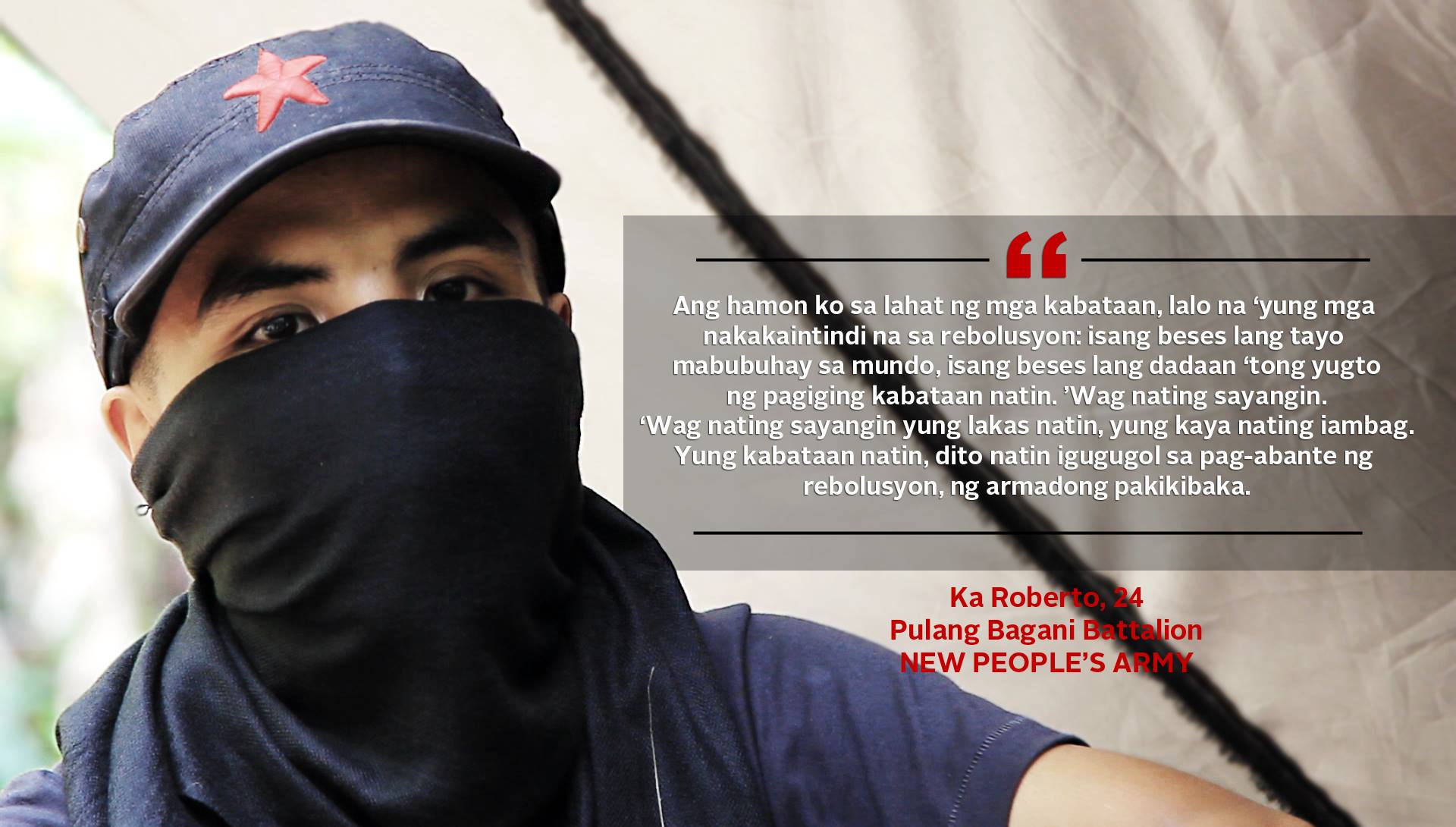

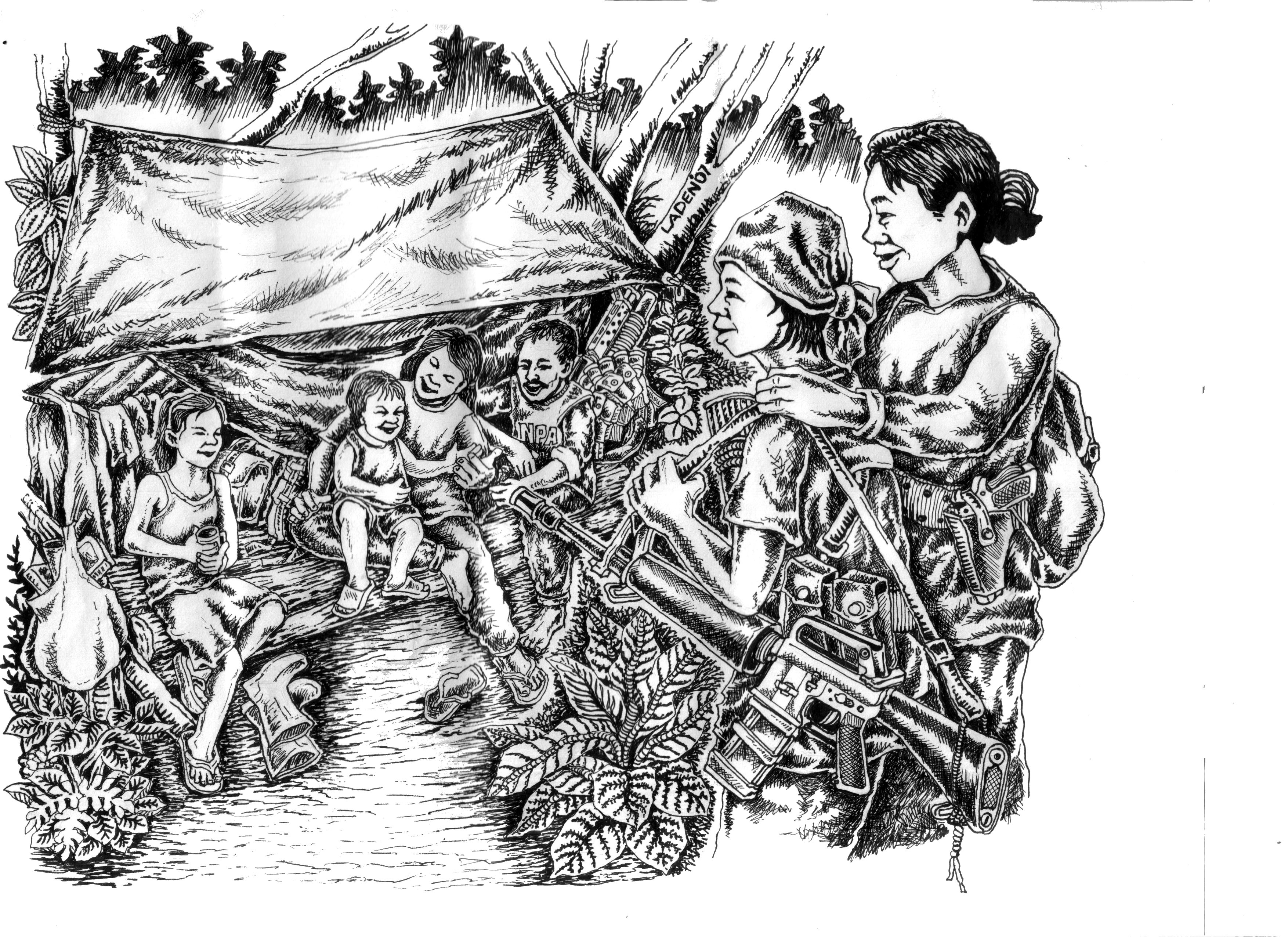
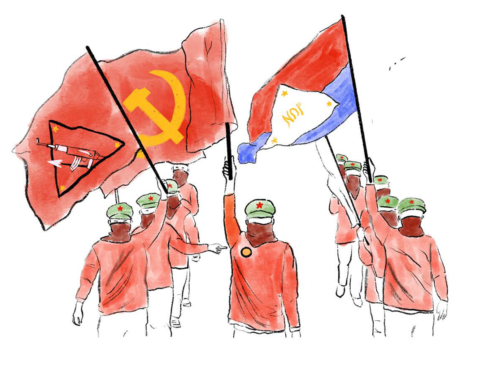


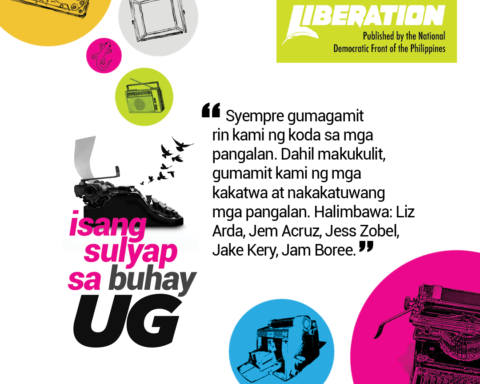



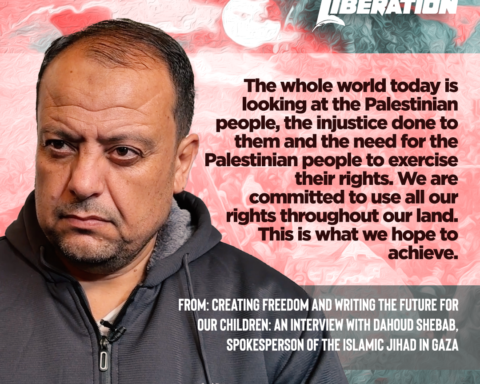
I enjoy the report
Thanks for the excellent post
I enjoy the report
I spent a great deal of time to locate something similar to this